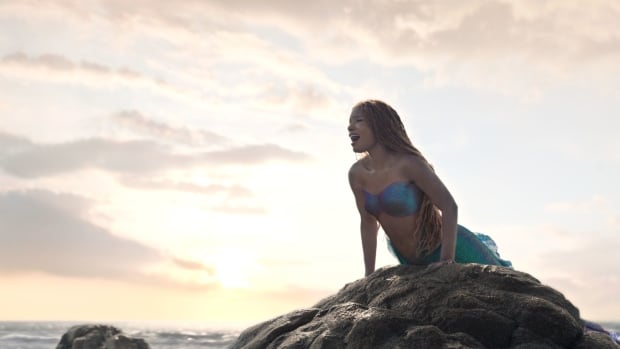Global Courant 2023-05-26 13:00:00
Thirteen years after Tim Burton’s Alice in Wonderland became the sixth film ever to cross the billion-dollar mark, it seems more than ever that there is a third certainty in life. Because, as Bob Iger is our witness, death, taxes and an endless series of soulless live-action remakes made from the bones of what were once untouchable Disney classics are the only things we can be sure of.
Depending on how you count (is 2000’s 102 Dalmatians a remake of the original, and how exactly does 2010’s The Sorcerer’s Apprentice fit into the Fantasia universe?) the House of Mouse has returned to their cartoon vault somewhere in the neighborhood of 20 times, of almost as many currently in development.
And while there are a few exceptions — Kenneth Branagh’s Cinderella and David Lowery’s surprisingly subversive Pete’s Dragon among them — their track record suggests it’s not a commitment to inventive storytelling that sends the company back to the pit. Instead, it’s probably a chance to scrub past social faux pas for a new audience, along with the rodent-sized dollar signs swimming in Mickey’s eyes.
The Little Mermaid gave all early indicators of the same thing: a soft-shoe money grab whose existence simultaneously disrespects the magic and singularity of animation, while delivering a timid plot to uncritical children – that’s just harmlessly distracting enough for Disney to sneak out the back door with your ticket money.
While parts of that assessment still hold true after the credits roll, there’s something more to the story. Because you unfortunately have to (somewhat) hand it to them – at least in the disillusioning, decomposing pile of animated adaptations, The Little Mermaid is somewhere in the upper half.
LOOK | The Little Mermaid trailer:
More songs, more reality
That said, the merit isn’t in anything new being pulled from the story. We still follow teenage sea (almost) Queen Ariel as she strikes a deal with the octo-witch Ursula, gaining legs and losing her voice to venture onto land in pursuit of Prince Eric. But with a runtime nearly twice that of the original, director Rob Marshall and writer David Macgee almost impressively manage to avoid adding a lot of content.
Instead, the numbers are cut (Marshall stripped the admittedly bizarre Les Poissons to get the gruesome visual reality of boiling CGI characters), plot points tweaked (Ariel’s father King Triton now wants her by his side for the “Coral Moon Festival”, rather than an inexplicably important musical number) and certain characters pushed into the background – including Canadian Jacob Tremblay’s eerie valley Flounder.
But at the same time there is respect for the original. Although songwriter partner Howard Ashman died in 1991, Alan Menken returned to work on this iteration of The Little Mermaid. This is evident from the subtly updated, but above all impressive performances; musician and actor Halle Bailey initially struggles to replicate the beautiful, ingenious voice quality of Ariel’s 1989 Jodi Benson, but is given more space and an additional reprise on Part of Your World to show off the incredible register-hopping power she developed while performing with her sister Chloe.
LOOK | The big impact of The Little Mermaid trailer for young black girls:
The Big Impact Of The Little Mermaid Trailer For Young Black Girls | The moment
The first trailer for the live-action movie The Little Mermaid, starring Halle Bailey, has many young black girls excited to see themselves as a Disney princess.
And while redefining what was the first “I want” song of the Disney renaissance, Melissa McCarthy’s Ursula does enough to keep the story interesting with one of the most iconic villain songs of all time, Poor Unfortunate Souls. While she doesn’t quite match the drag queen-inspired vocal performance of the supreme Pat Carroll, that would probably be impossible. McCarthy instead impressively manages to perform in the same general arena.
The extra running time is usually spent on a padded, but not meaningfully extended story. We get a lot more insight into Prince Eric’s desires and appropriately tragic backstory – first spelled awkwardly, then repeated unnecessarily in his own (additional) “I want” issue, Wild Uncharted Waters.
Eric also gains an adoptive mother – Noma Dumezweni’s queen Selina – and his isolated island nation develops an uneasy relationship with and aversion to globalism. World-traveling adventurer Eric constantly pushes for more trade (and, coincidentally, more world-traveling adventures for himself) as his mother fights to keep them cut off and protected; it’s an ill-fitting, and never fully fleshed out, parallel to Ariel’s burning desire to meet and learn from people against her father’s wishes, which probably looked better on paper than on screen.
Closer to the attempted acceptance of others half-heartedly raised by Prince Eric’s island is Ariel herself: ever since Bailey was announced as the lead actress, a litany of critics have lamented loudly — either because a black woman was cast in a role that was originally written as white, or (nonsensical) that it’s somehow less plausible that mermaids evolved into black because they live underwater.
While that’s far from the only supposed improbability (Scuttle, a bird, speaks and breathes underwater for an entire scene, for example) or the only change, that critique casts some of the film’s only real strengths as flaws: Under the Sea we get a multicultural mer family that, especially to children, suggests a world that never has to worry about racism.
Not only is the implausibility criticism disputable, insincere, and bad faith, it’s a symptom of the overwhelming problem at the heart of this remake: an apparent belief that adapting a cartoon properly means it fits better within the confines of the reality. The most obvious example is the visuals, as cute anthropomorphic animals once turned into ghastly sea animal abominations – Sebastian’s harvest angels are sure to haunt your dreams, while Flounder’s literal fish face just made me recite the Jaws monologue: “lifeless eyes, black eyes, like the eyes of a doll.”
Bailey, right, appears in a still from The Little Mermaid. To her left are the characters Flounder, voiced by Canadian Jacob Tremblay, and Scuttle, voiced by Awkwafina. (Disney)
The environment also becomes more realistic – and while that adds visually interesting segments like cavitation in underwater explosions and a whale trap on the way to Urusla’s lair, it also makes the underwater environment infinitely more boring and depressing.
And, of course, there’s the effort to better align character choices and thematic messages with the real world. Why does King Triton hate people irrationally? Here (possibly borrowed from a prequel released 20 years after the original) it’s because they caused his wife’s death, rather than just because they eat fish.
After Ariel loses her vote in her deal with Ursula, why doesn’t she just write a note to Eric explaining why they should kiss? Now it’s just an added caveat to Urusla’s spell, forcing Ariel to forget the terms of their deal – which also potentially removes the dubious subtext that comes with her motivation to enter into a physical relationship over an emotional one.
Fixing past mistakes only adds new ones
There were other similar changes – Menken told Vanity Fair that the “body language” segment of Poor Unfortunate Souls – where Ursula advises Ariel that “on land it’s much better for ladies not to say a word” – was removed so that “somehow young girls (would) not feel would have that they should’ I don’t speak out of turn.”
While some changes seem warranted when you’re remaking a movie that’s decades old, others seem unnecessary – kids are probably unlikely to take advice from a Disney villain. Meanwhile, remaking a classic to fix past mistakes doesn’t leave much room for spontaneity or sheer fun. Instead, at best, you end up with a safe, sanitized, and sensible replay with no magic, novelty, or passion – and that needed absolutely no imagination.
Even if that leads to a product neuter enough to succeed at the box office, the best accolade you can give The Little Mermaid is that it didn’t hurt the memory of the original all that much. But at the same time, if it didn’t bother in the first place, at least we wouldn’t have to live in a universe with a new Awkwafina-provided rap song that Vox’s most aptly described as ‘auditory terrorism’.








